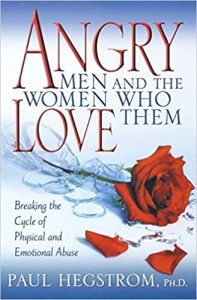The Dec. 15 (2008) issue of Newsweek features a breathtakingly biased essay called “The Religious Case for Gay Marriage.” The author, Lisa Miller, has a high view of homosexuality and a low view of scripture—and an even lower view of those of us who dare trust in God’s word. (Managing Editor Jon Meacham supports Ms. Miller’s piece in his column: he says the “conservative resort to biblical authority is the worst kind of fundamentalism.”)
Both Ms. Miller’s logic and her understanding of scripture and theology are riddled with problems. Let’s look at a few.
The biblical illustrations of marriage are so undesirable that no sensible person would want theirs to look like it. Abraham slept with his servant because his wife was infertile. Jacob fathered children by four mothers. Polygamy abounded in the patriarchs and the kings. Jesus and Paul were unmarried, Paul regarding “marriage as an act of last resort for those unable to contain their animal lusts.”
People have been making this mistake for years, taking the narrative sections of scripture and inferring that this is what God says to do since “it’s in the Bible.” As my friend Dan Lacich put it, it is the mistake of taking the “descriptive” and making it “prescriptive.” That would be like charging the editorial board of the Dallas Morning News with being pro-murder and pro-steroid abuse because it published news stories about those issues.
It’s true that the Biblical account includes a stunning array of ways to mess up God’s simple and beautiful plan for marriage. If we keep reading, it also includes the heartbreaking consequences of violating that plan. And, in the Song of Solomon, it also includes a lavish treatment of romantic love between a husband and a wife that illustrates how good it can be.
“[T]he Bible is a living document, powerful for more than 2000 years because its truths speak to us even as we change through history. In that light, Scripture gives us no good reason why gays and lesbians should not be (civilly and religiously) married—and a number of excellent reasons why they should.”
It’s clear Ms. Miller agrees with Bible scholar Alan Segal that “the Bible was written by men and not handed down in its leather bindings by God.” (I’ve never come across a single individual who actually believed a physical book was plopped in anyone’s lap from heaven, but we keep hearing this argument.) Robert Gagnon, professor of New Testament at Pittsburgh Theological Seminary, points out that while scripture has a human element, it is not merely the compilation of human ideas. The ideas behind the words written down by men come from the mind of the same God who created men and women, and who invented sex and marriage. Ms. Miller is wrong about gay marriage because she disregards the truth of God’s word in favor of human philosophies, about which we are warned not to be taken captive (Col. 2:8).
“Most of us no longer heed Leviticus on haircuts or blood sacrifices. Why would we still accept its stance on homosexuality?”
Ms. Miller mentions the two proscriptions against homosexual behavior in Leviticus 18 and 20 as “throwaway lines in a peculiar text given over to codes for living in the ancient Jewish world.” This is a common argument for dismissing the Bible’s stance on same-sex behavior, but it’s not that simple. Both chapters forbid child sacrifice, adultery, incest, bestiality, and homosexuality. Why wrench the one verse on homosexuality out of each chapter’s context to throw away and keep all the surrounding prohibitions? We never hear this argument used to normalize having sex with one’s child or one’s father or one’s dog. Nor should we. Ever.
Sexual issues are moral issues. They are not in the same category as laws for haircuts or blood sacrifices. We know this because sexual laws don’t change over time, as did civil and ceremonial laws. Moral commands are rooted in the character of God, specifically His purity and holiness. His character does not change over time, and neither do His commands about how we are to express our sexuality.
“While the Bible and Jesus say many important things about love and family, neither explicitly defines marriage as between one man and one woman.”
If we’re looking for an in-your-face 21st-century kind of Bible verse that says “Marriage is only between one man and one woman,” we won’t find it. What we do find is an equally in-your-face first-century teaching about marriage from the lips of the Lord Jesus Himself. In Matthew 19:4-5, He puts back to back two important verses from the foundational creation account of Genesis 1 and 2: “Male and female He created them (1:27) and said, ‘For this reason a man shall. . . be joined to his wife and the two shall become one flesh’ (2:24).” (Also found in Mark 10:6-8.) This was the creation. This was the original intent. All variations on this are corruptions of God’s intent.
Jesus never mentioned homosexuality. . .
He didn’t have to, for the same reason we have no record of Him denouncing nuclear war. It was unthinkable in the Jewish culture to which He spoke. If you look in the historical records of the time, references to homosexuality just aren’t there. Not that it didn’t ever occur in private, but that it was off the “radar screen,” so to speak. There were also no advocates for same-sex relationships in the Jewish culture. (But there were in the Gentile culture to which Paul was called as an apostle, which explains why he addresses homosexual behavior and calls it sin.)
Dr. Gagnon writes about Jesus,
“Telling his audience in first-century Palestine that men should stop having sex with other males would have been met with perplexity since the point was too well known, too foundational, and too strongly accepted to merit mention. I myself have never been in a church where the pastor explained why believers shouldn’t be in a sexual relationship with their parent, child, or sibling or shouldn’t enter a polyamorous relationship. I have never thought that the reason for this is that the minister was open to incest or polyamory of an adult-committed sort.”
. . .But he roundly condemns divorce.
Again, Dr. Gagnon insightfully points out:
“Jesus takes time to condemn divorce/remarriage not because it is a more serious violation of God’s sexual norms than homosexual practice—or than incest or bestiality, two other sexual offenses that Jesus also never explicitly mentions—but because it, along with lust of the heart, was a remaining loophole in the law of Moses that needed to be closed. The law already clearly closed off any option for engaging in homosexual practice, incest, bestiality, and adultery, whatever the excuse.”
The Newsweek article closes with a quote from Ms. Miller’s priest friend James Martin. “In his heart he believes that if Jesus were alive today, he would reach out especially to the gays and lesbians among us, for ‘Jesus does not want people to be lonely and sad.’” I couldn’t agree more. I can easily picture the Lord walking into gay bars with a warm smile on His face and open arms, ready to look straight past the shame that holds so many same sex attracted people in its grip, and offer them the embrace of grace instead. But He wouldn’t be officiating at any gay weddings. He would lovingly exhort them, one by one, as He did the woman caught in adultery: “Go and sin no more.” It’s true He doesn’t want people to be lonely and sad. His intention is for the community of His body to provide the sense of legitimate belonging and significance that people are seeking in gay marriage. As is often the case, the joy He offers is so much more than our too-little dreams and hopes. But it’s freely available.
I am grateful for the insights of two excellent commentaries on this issue:
Dan Lacich’s blog, Provocative Christian Living, http://provocativechristian.wordpress.com/2008/12/12/newsweek-magazine-and-the-case-for-gay-marriage/,
and
Dr. Robert Gagnon’s article “More than ‘Mutual Joy’: Lisa Miller of Newsweek against Scripture and Jesus,” http://www.robgagnon.net/NewsweekMillerHomosexResp.htm
This commentary was originally published on Tapestry, the Bible.org Women’s blog, and is used by permission.
 If you subscribe to the Probe RSS feed, every time we add a new article to our website—whether it’s a radio transcript (article), or an answer to email, or something written just for Probe.org—a short description and a link will appear in your feed reader. All you have to do is start up your feed reader, which is a great way to keep up with blogs or other frequently updated websites you like.
If you subscribe to the Probe RSS feed, every time we add a new article to our website—whether it’s a radio transcript (article), or an answer to email, or something written just for Probe.org—a short description and a link will appear in your feed reader. All you have to do is start up your feed reader, which is a great way to keep up with blogs or other frequently updated websites you like.